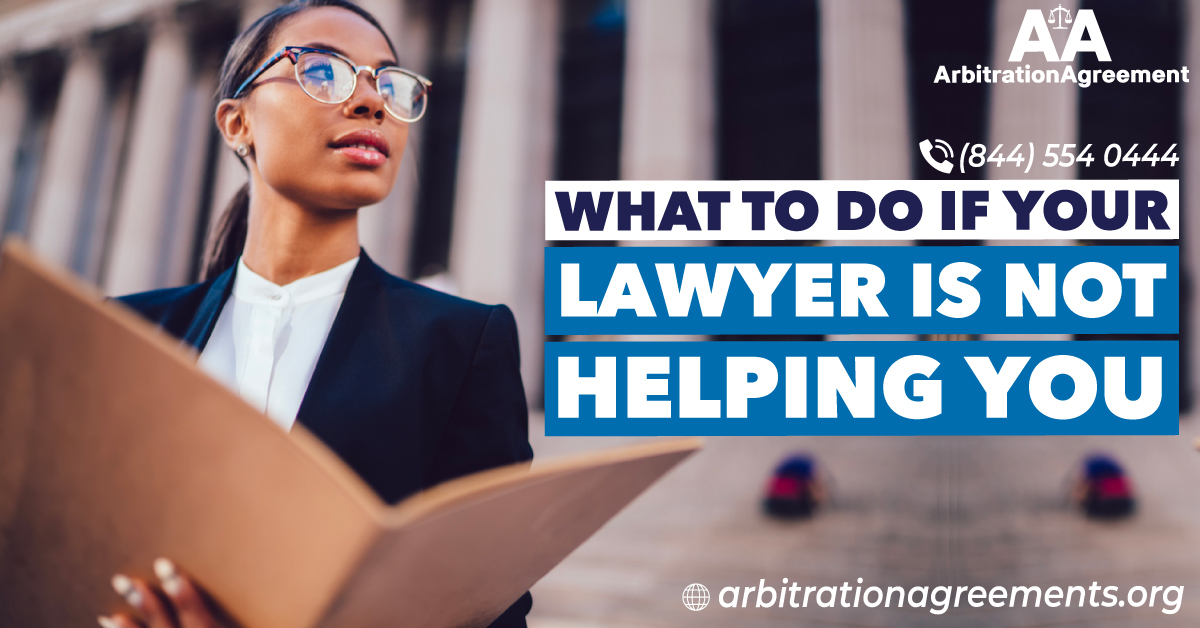What to Do If Your Lawyer Is Not Helping You
Nitin Paul Harmon
Nov. 21, 2023, 10:04 a.m.
...
Nitin Paul Harmon
Nov. 21, 2023, 10:04 a.m.
...
In the intricate world of legal disputes, the expertise and support of a lawyer can be the pivotal factor that determines the outcome. Do you want to know what is the difference between arbitration and mediation? However, what happens if you feel your lawyer is not acting in your best interest or you're unsatisfied with their services? This article is tailored for anyone involved in a civil dispute and experiencing such a predicament.
Understanding the reasons behind your dissatisfaction is the first step. Sometimes, it's a communication breakdown, while other times, it might be a genuine negligence on the lawyer's part. Common concerns include:
When you're embroiled in a civil dispute, it's natural to consider taking the matter to court. However, litigation isn't always the best option. That's where Alternative Dispute Resolution (ADR) comes into play.
ADR offers an alternative to traditional court proceedings. This method allows both parties to come together, often with a neutral third-party mediator, to negotiate a solution. The key advantage is that it provides a space for collaborative problem-solving rather than adversarial confrontation.

Choosing the Right Path Forward
Having considered the benefits of Alternative Dispute Resolution and the potential drawbacks of court litigation, the next step is determining the best path forward for your situation.
Not all disputes are suitable for ADR, and not all types of ADR are appropriate for every situation. Want to know the arbitration clause & provision? There are various forms of ADR, including mediation, arbitration, and conciliation. Each has its characteristics and suitability depending on the nature of the disagreement.
Seek counsel from professionals who specialize in ADR at our association. Read more about the Arbitration Agreement Association. We can guide you on the most appropriate form of resolution for your specific situation.
Certain disputes may lend themselves more naturally to ADR. For instance, disputes where both parties have an ongoing relationship, such as business partners or family members, might benefit from the collaborative nature of mediation. In contrast, a case involving complex legal issues might be better suited for arbitration.
Whether you opt for ADR or decide to proceed with litigation, preparation is crucial. Understand your rights, gather all pertinent documents, and make sure you're clear on what you hope to achieve. Even in a mediation session, being well-prepared can make the difference between reaching a satisfactory resolution and leaving with unresolved issues.
As you find yourself in the midst of a civil dispute, with concerns about your lawyer's efficacy, it's natural to feel a mix of emotions—frustration, anxiety, confusion. Learn more about arbitration agreements meaning information. Yet, moments like these can also be viewed as opportunities: opportunities to reassess, realign, and redefine your path forward.
Before diving headfirst into an alternative approach, it's essential to recognize the root of your dissatisfaction. Did your initial expectations match the reality of legal processes? Sometimes, our expectations, formed by movies or anecdotes, don't align with the actual intricacies and pace of legal proceedings. Recognizing this disparity can help recalibrate expectations and guide your next steps.
Trust is the foundation of the attorney-client relationship. If you feel your lawyer isn't serving you well, your trust erodes. Know how arbitration vs litigation is a common dispute resolution talking point. But remember, trust is a two-way street. While your attorney must work to earn and maintain your trust, it's equally vital for you to communicate your concerns, needs, and goals clearly. Only through open dialogue can misunderstandings be addressed and trust be rebuilt or redirected.
Before jumping ship or seeking alternative dispute methods, consider the following within your current legal team:
While attorneys are trained professionals, they rely on you—the client—for crucial information and insights about the case. Know how the Federal Arbitration Act applies to both federal and state courts. Ensure you're an active participant, voicing your concerns, asking questions, and seeking clarifications when needed. Your proactive involvement can steer the direction of the case and influence outcomes.
Alternative Dispute Resolution stands out as an excellent alternative. It's just one of many paths available. Depending on the nature and complexity of your case:
The legal landscape can be daunting, especially when you feel that your lawyer isn't providing the support you need. Know what is mandatory arbitration? However, by understanding your options, seeking the right counsel, and being proactive, you can navigate the challenges and find a resolution that serves your best interests through alternative dispute resolution.
Remember, the legal system exists to provide justice and fairness. Whether through traditional court proceedings or alternative means like ADR, the primary goal should always be to reach a just and equitable solution. Do you want to know how non-binding arbitration works? Alternative Dispute Resolution, with its myriad of benefits, might be the path that leads you to that desired outcome more efficiently and effectively. Whatever route you choose, stay informed, stay prepared, and seek the best possible advice and representation.